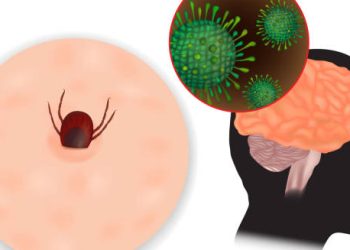Symptoms of Ear Infections
The symptoms of ear infections can vary depending on the part of the ear affected, the severity of the infection, and the person’s age. However, pain is the most common and earliest symptom across all types. Ear infections in children often present with different signs than in adults, making early recognition by caregivers and health workers crucial.
In middle ear infections (otitis media), the most typical symptoms include:
Ear pain or tugging at the ear (especially in young children)
Fever
Irritability or difficulty sleeping
Hearing difficulties
Fluid drainage from the ear (if the eardrum ruptures)
Loss of balance
Crying more than usual
Young children may not be able to express their discomfort, so parents often notice general fussiness, feeding problems, or unusual crying. If the infection causes fluid to build up behind the eardrum, hearing can become muffled. This can delay speech development if the infection is recurrent or untreated.
Outer ear infections (swimmer’s ear) typically cause:
Redness and swelling of the ear canal
Pain that worsens when the ear is pulled or pressed
Itchiness in the ear
Discharge or a foul smell
A blocked or full feeling in the ear
Inner ear infections are less common but more serious. Symptoms can include:
Severe dizziness or vertigo
Ringing in the ears (tinnitus)
Sudden hearing loss
Nausea or vomiting
Difficulty standing or walking due to balance problems
In South Africa, many cases go untreated due to limited access to healthcare, especially in remote or informal settlements. This can lead to chronic ear infections, eardrum perforation, and permanent hearing loss. In schools, children may struggle academically simply because they cannot hear properly—yet the underlying ear problem goes unnoticed.
Recurring or chronic infections may result in more subtle symptoms like persistent fluid in the ear (known as glue ear), speech delays, or frequent behavioural issues. These signs can sometimes be mistaken for learning difficulties or inattention.
Symptoms of Ear Infections
In adults, symptoms of ear infections may also include jaw pain, headache, or a sensation of pressure in the head. Some infections are linked to dental problems or sinus infections, which should be treated concurrently.
It is essential to seek medical help if symptoms last more than 48 hours, worsen over time, or are accompanied by high fever, discharge, or signs of hearing loss. Untreated infections can spread to nearby tissues, including the mastoid bone or brain, leading to serious complications.
Recognising the symptoms of ear infections early—especially in children—can prevent long-term issues and allow for faster recovery. Prompt treatment reduces the risk of hearing problems, speech delays, and school difficulties.
[Next: Diagnosis of Ear Infections →]


